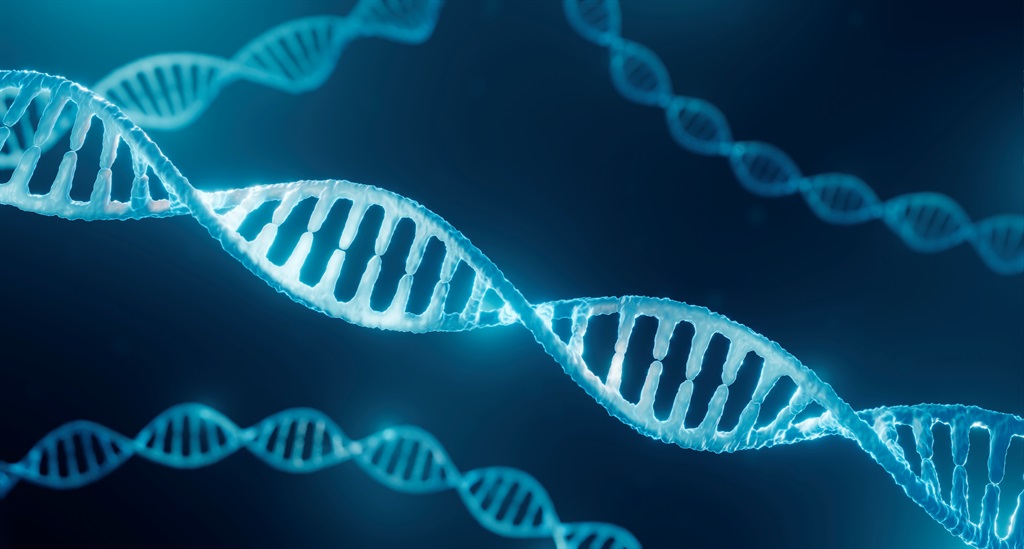
- There are health secrets contained in DNA.
- The World Health Organisation has identified expanding "genomics"as a critical research field for bettering public health.
- A South African research facility is taking strides to build next generation sequencing capacity in the country.
- For more stories, visit the Tech and Trends homepage.
A facility in South Africa is building capacity to allow for next generation sequencing (NGS), a technology touted by the World Health Organisation (WHO) as being critical to the future of healthcare.
The Genomic Platform of the South African Medical Research Council (SAMRC) was created in 2019 and provides local access to the technology required to enable precision medicine through genomics.
Genomics is the study of the genetic information of organisms, which attempts to understand the impact of this genetic information on other biological processes.
There is genetic material in nearly every living cell of every living organism that provides an instruction manual for how to build that organism. This instruction manual is known as DNA.
Organisms from the same species have DNA that is nearly identical. Humans share 99.9% of their DNA. But there are some differences in the DNA of organisms of the same species which results in individuality.
This genetic individuality influences observable characteristics such as eye colour, but it can also impact things such as our ability to process certain drugs or our susceptibility to certain diseases.
There are DNA tests, which are available in South Africa, that allow people to pay to have their DNA sequenced for information about their ancestry, what food they should be eating, how likely they are to go bald, and whether arthritis runs in the family, among other things.
The use cases for genomics were wide, according to the WHO.
"Genomics advances public health through the surveillance of pathogens, the provision of tools for medical care [in the prevention, diagnosis, management, treatment, and monitoring of disorders and diseases], and the improvement of food production," read a report by the WHO's Scientific Council.
In 2021, the WHO's director-general formed the council to advise the intergovernmental public health body on what its scientific agenda should be.
The subject of council's first report was genomics.
The report put forward a series of recommendations to "promote the adoption or expanded use of genomics".
WATCH | Editing human genome: Scientists meet to discuss rare diseases
"We strongly support the early diffusion of genomic technologies throughout the world so that humankind can collectively derive health and other benefits from genomics," said the report.
It added measures should be taken to ensure the technology was rolled out across the world.
"The council has also concluded that a long lag time between the availability of genomic technologies in rich countries and their availability in less-resourced countries is neither ethically nor scientifically justifiable."
An African solution
In 2019, the SAMRC launched a genomic platform capable of performing next-generation sequencing, the technology required to perform genomics.
"What usually happened when researchers wanted to do next-generation sequencing is that they would have collaborators overseas with US service providers and what happens is the samples get collected in-country and then get shipped out to overseas service providers," said Professor Craig Kinnear, the director of the genomics platform.
"So, the idea was to have something in-country that researchers can access."
He added the idea behind launching the platform was to produce something that could be used "quite cheaply", while producing "good quality data".
The platform performs sequencing work for clients, performs its own research with the technology, promotes the expansion of capacity of genomics facilities in South Africa and helps diagnose patients who have rare diseases.
As one of the few genomics centres on the African continent, the facility was keen to apply the technology to African concepts, according to Dr Nadia Carstens, the platform's laboratory manager.
She said almost all big research groups and universities in more developed countries were using the technology, but the same was not true in Africa.
Carstens added:
She said it was important the NGS was developed for "our specific issues, our specific questions, and our specific budgets".
As part of this drive, Kinnear added, the centre would be sequencing 500 African plant species which could help provide a basis for how to use traditional medicine to treat diseases.
Precision medicine
Carstens said there was a movement towards precision medicine, which focused on tailoring patients' treatment to their specific disorder or subtype.
Kinnear added the NGS could be used to enable the technologies required to perform precision medicine.
He said:
Carstens added the range of industries approaching the centre was wide, saying the range of work had crossed from TB to dentistry.
Kinnear said next-generation sequencing technology had come far.
"Things that took three decades to do can now be done in the space of two weeks.
"We have a technology where everything is encoded in your genetic material - we just need to unlock it," he added.




 Publications
Publications
 Partners
Partners
























